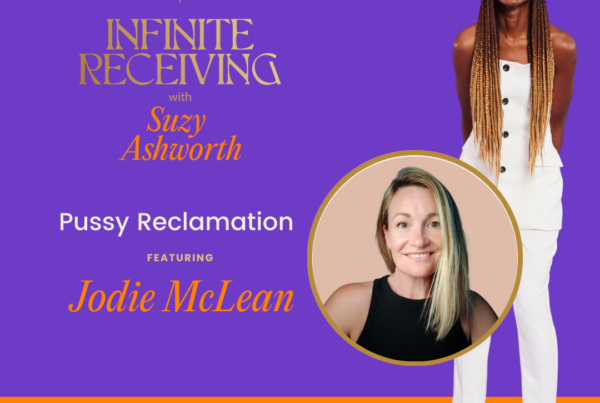Feeling Anxious?

According to the Mental Health Foundation, 25% of people living in the UK suffer from some type of mental health problem; with mixed anxiety and depression being most commonly diagnosed. In the past the words mental health issue, may have conjured up images of a person rocking back of forth, locked away in a small room, talking to people who aren’t there. Whilst for certain individuals, this cliche might be an accurate reflection of their circumstances; TV shows like Channel 4’s Bedlam, alongside high profile individuals such as Stephen Fry, Ruby Wax and Alistair Cambpell are using their profiles effectively to challenge this outdated stereotype as the norm.
What is Anxiety?
Anxiety is a sense of unease that manifests both emotionally and physically, it’s a feeling that everyone experiences from time to time and is a normal part of every day life. Anxiety or fear is felt most commonly when a person is stepping into the unknown. To deal with the uncertainty of the situation the body produces chemicals and hormones like adrenaline; these hormones make people feel more alert and prepared to deal with any unexpected things that might happen. This is a very appropriate and vital response. Once the new situation becomes more familiar, the body stops producing adrenaline and starts producing ‘feel good’ hormones like endorphins, it is at this point a person starts to feel less on edge and is able to relax.
However, for some people being in that state of high alert doesn’t seem to subside, even when rationally and consciously they know that there is nothing to be concerned about. Some people describe the mind, as feeling like a wild as an untamed horse, galloping from one negative thought to another; leaving a person feeling both emotionally and physically drained at the end of the day.
What are the causes of Anxiety?
Anxiety can be caused for a number of reasons: life circumstances, a traumatic event, feeling unsupported, being bullied to name just a few examples. The common theme with all people who experience ongoing worry or fear, is whilst anxiety might be a normal and necessary response, whilst in a difficult situation – the feeling of being constantly on edge persists, when a person is unable to focus their mind on the present moment.
Symptoms of Anxiety
Emotional
- Irrational concerns and worries
- Constantly projecting negative thoughts and worries into future situations.
- Feeling irritable
- Feeling frustrated
- Feeling out of control
- Looking for constant reassurance from family and friends
- Feeling like you want to run away
Physical
- Heart palpitations
- Stomach problems
- Feeling Sick
- Sweating
- Feeling dizzy
- Hyperventilating
- Feeling like you can’t breathe
- Pins and Needles
- Needing to go to the toilet
- Feeling the heart pounding as blood pressure rises
3 Tips for Overcoming Anxiety Now
1. Use the 7/11 breathing technique
- Practice 3 times a day, ideally for 5 to 10 minutes. Once in the morning before you get out of bed, take some time out at lunch and then in the evening before you go to sleep.
2. Know that you are not your thoughts
When a person is feeling continuously anxious, they get into the habit of going round and round, the same negative thought path. However, with practice, you can gain control of your thoughts once again.
- When you notice your thoughts beginning to spiral negatively, say to yourself or imagine a large stop sign in front of your eyes.
- Take a deep breath in and as you exhale imagine something or someone that makes you feel amazing and allow it to make you smile.
- Although this technique can take time to master, as your brain will want to keep jumping back to the negative. It is impossible to think about a positive and a negative thought at the same time and this exercise shows you how you can interrupt that old way of thinking.
3. Look at your Diet
- If possible cut out caffeine – or at the very least radically reduce your intake.
- Swap your pizza and pasta for high protein, low GI meals, massively reducing your sugar consumption
- Attempt to eat 5 times a day 3 meals and 2 snacks
By following the advice above you will be taking yourself off of the sugar and adrenaline roller coaster, that your body will inevitably be on if you currently have a high carbohydrate diet. The Food Doctor Ian Marber has some great suggestions, on how to maintain healthy eating habits, which will undoubtedly have a positive impact on your physical and emotional well being.
The tips above are starting points to help you on journey and leave anxiety in your past. There are lots of self help tips, advice and forums available on the internet for you to seek free support from. I have listed some resources below. However, if you’re anxiety is holding you back in the extreme, whilst the above tips will help, I do advise you to seek professional help.
Other Resources
http://www.moodjuice.scot.nhs.uk/anxiety.asp Is an excellent self-help work book that will help you to start taking control of the anxiety
Talking Therapies
Cognitive Behavioral Therapy Register
Books
The Worry Cure: Seven Steps to Stop Worry from Worrying You
Photo credit: http://www.flickr.com/x/t/0091009/photos/hollylay/



this is a great article, is very helpfull 🙂
Thank you very much – glad you found it useful.
I’ve suffered from this myself a fair bit and there’s some great tips for if/when it rears its ugly head again!
Hey Ruth, I’m glad you found this interesting and here’s to many more anxiety free days ahead 🙂